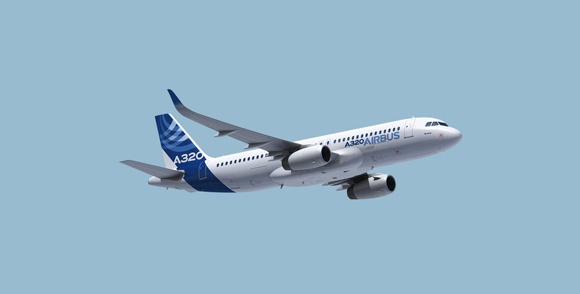Satair turns to metal Additive Manufacturing to produce Airbus spare parts
October 28, 2020

Satair, an Airbus services company, has provided one of its airline customers in the US with what it reports is the “first certified metal printed flying spare part” – a wingtip fence for the A320ceo. The part was no longer procurable from the original supplier, and by using metal Additive Manufacturing to replace it, the company has been able to reduce the likelihood of the aircraft being grounded.
Satair is a standalone Airbus subsidiary and part of the Airbus Customer Services unit, and operates from ten locations worldwide. The company offers full-lifecycle aircraft support with a portfolio of material management products, services, and support modules across all platforms.
The A320ceo’s wingtip fences are installed in four different versions – starboard, port, upper and lower. According to Satair, the original spare parts supplier had difficulties providing the cast part, leading to a regular loss of the moulds and resulting in a potentially high investment cost for Satair to replace the moulds for individual orders. The company studied other conventional options to replace the part, such as redesigning it for machining technology, but the resulting cost and lead-time implications were not competitive.
Felix Hammerschmidt, Satair’s HO Additive Manufacturing, explained, “We received an order for replacement parts and our AOG [Aircraft on Ground] procurement department turned to the Additive Manufacturing team for a solution. After a short pre-assessment, the part was handed over to the RapidSpares design offices at Airbus.”
“Using a new certification process, they were able to re-certify the former cast part within five weeks and adapt it to titanium, which is a qualified airworthy Additive Manufacturing material,” he continued. “The lead time for certification is expected to reduce even further in the future once the technology becomes more of a standard.”
The wingtip fence parts were additively manufactured at the Reference Manufacturing shop in Airbus Filton, which was process qualified in 2019 and is now able to produce airworthy parts regularly. Four parts (full shipset for one aircraft) were built simultaneously in a twenty-six hour build job, reducing the cost per piece and the build time per part.
After Additive Manufacturing, the part required post-processing to become an airworthy part, making it a one-to-one replacement for the original part whilst meeting the same safety requirements as the conventional part. The new AM part is supplied with an EASA Form 1 certification approval.
The shipset was delivered earlier this year – making the airline the first operator with an Airbus metal additively manufactured AM spare part. Compared to conventional solutions, total non-recurring costs were said to have been reduced by 45%, making it a cheaper solution for customers, as well as reducing the total lead time.
Bart Reijnen, CEO of Satair, stated, “Satair is leading the way in providing additive manufactured parts for the aviation aftermarket and we currently have more than 300 part numbers certified for the technology covering every Airbus aircraft family type including tools and Ground Support Equipment.”
“With more than 7,000 A320ceo Family aircraft in service worldwide, the demand for this specific additive manufactured part is likely to increase and with this Additive Manufacturing supply chain now in place, we will be able to produce these parts within a shorter lead-time,” he added. “Four more customers have already requested that same part following this successful delivery.”
“We have already identified more titanium parts for which Additive Manufacturing could as well become a more economical way of production, with higher flexibility and shorter lead times,” he concluded.
















